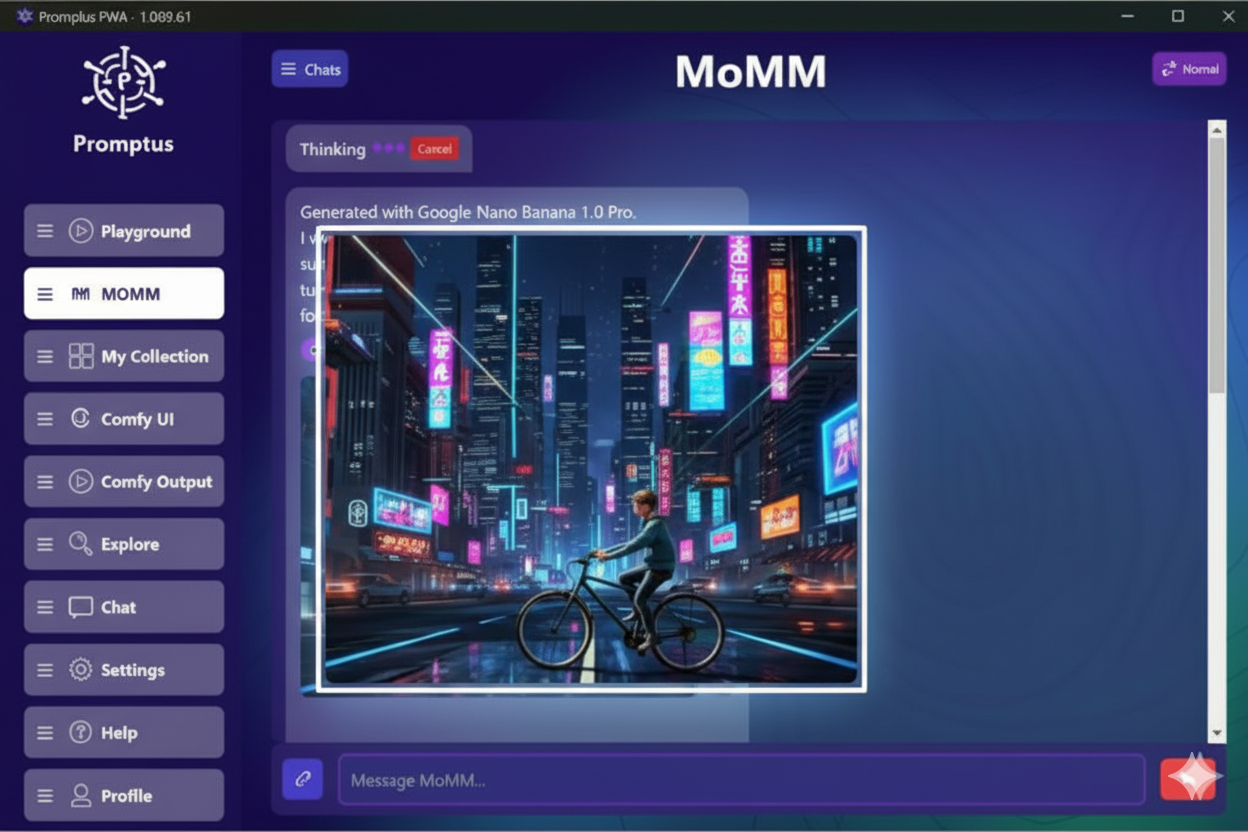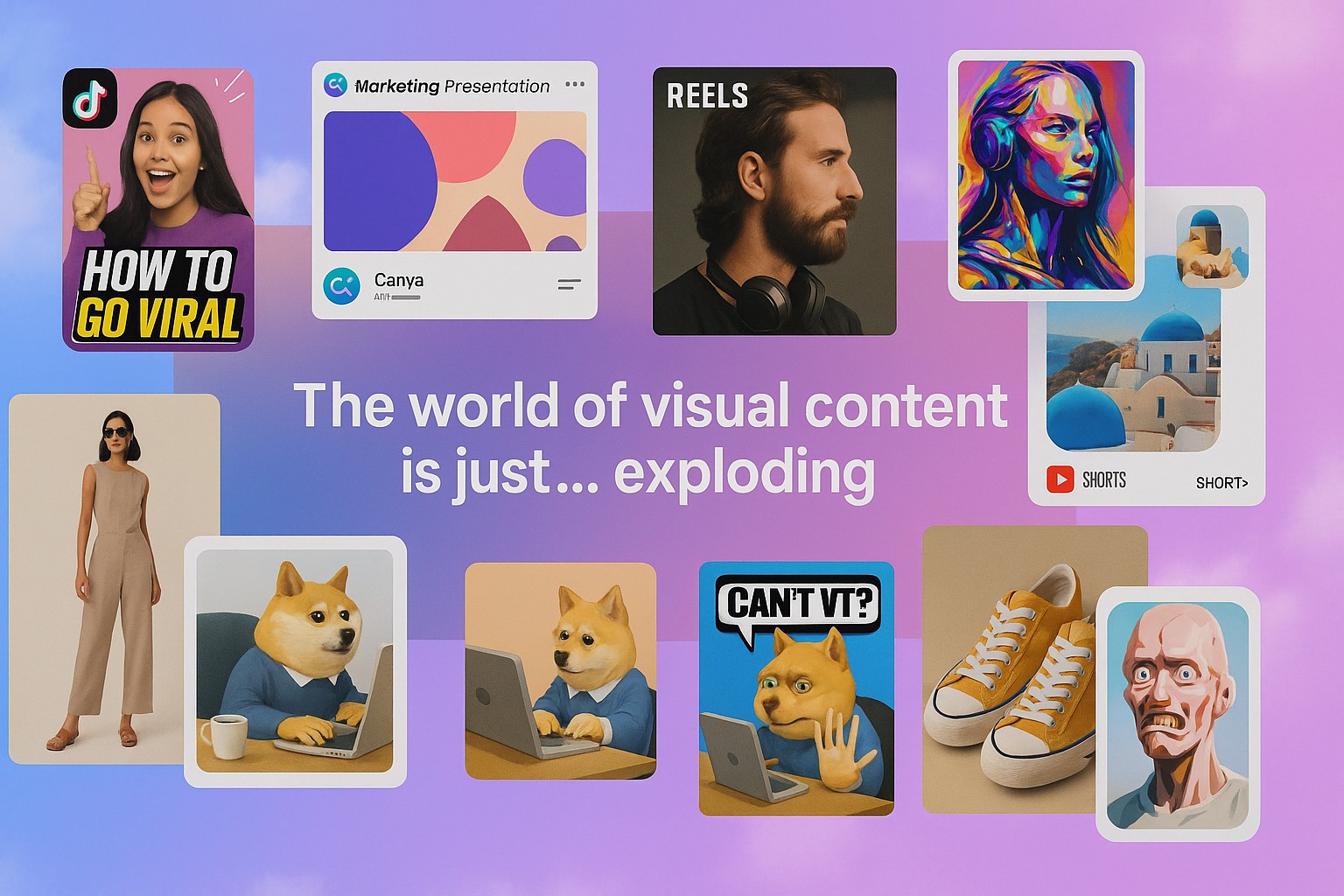Google Nano Banana’s Edge Over AI Rivals
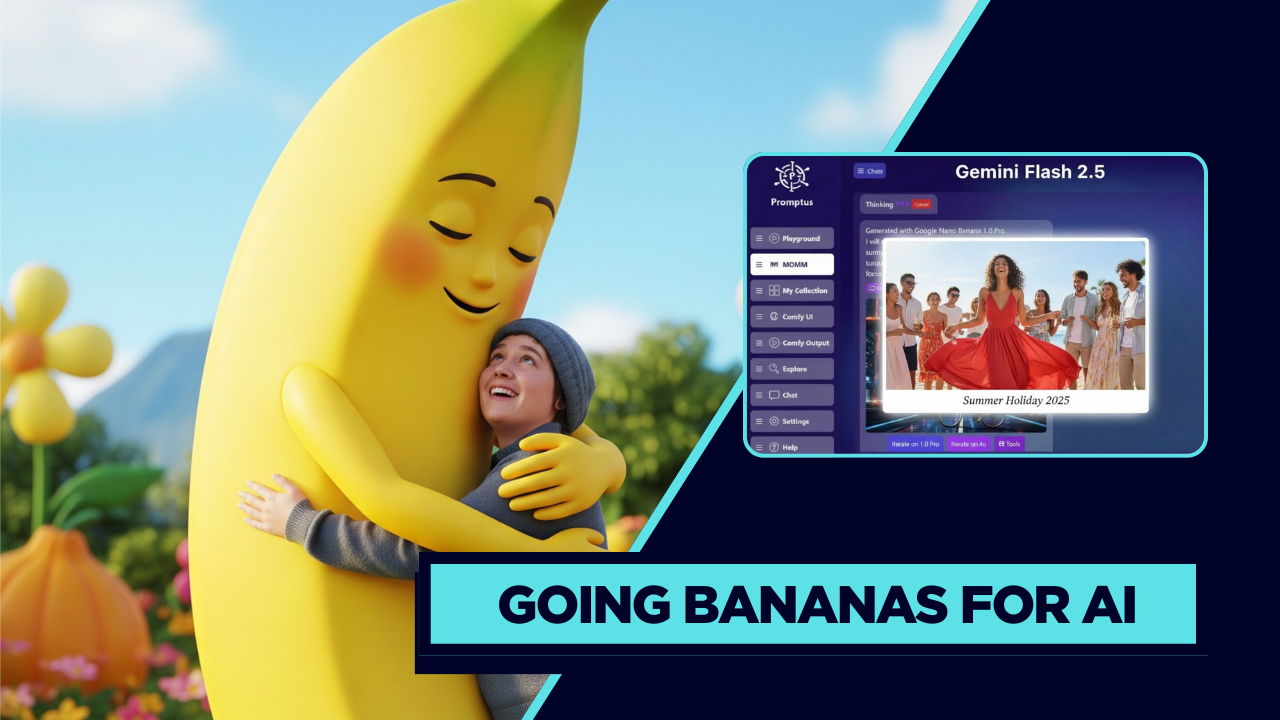
In an era where AI-generated images flood social feeds, the race is on for realism and reliability. Google’s Nano Banana (Gemini 2.5 Flash Image) is raising the bar, delivering stronger face consistency, smarter multi-turn edits, and more coherent environments than rivals Flux Kontext and Qwen-Image-Edit.
🎭 Character Consistency & Multi-Turn Editing
Nano Banana shines when it comes to identity preservation. Whether swapping outfits, adjusting lighting, or running multiple edits in sequence, subjects remain recognizably the same person (or pet). This makes it invaluable for marketing campaigns, comics, and storyboards.
Flux Kontext, optimized for speed and flow-based editing, does well in single-turn adjustments but can drift in identity stability across longer iterative workflows.
Qwen-Image-Edit performs well in semantic edits but is less reliable in keeping facial identity intact during repeated modifications.
🌍 Semantic Understanding & Scene Coherence
Nano Banana’s edits feel “aware” of their environment. Add a lantern, and shadows fall naturally; change day to night, and reflections adjust across the scene.
Flux Kontext is fast and versatile but sometimes sacrifices nuance in complex multi-object edits.
Qwen-Image-Edit is strong semantically but less polished in blending new objects seamlessly into backgrounds compared to Nano Banana.
✍️ Advanced Text & Layout Editing
Here Qwen-Image-Edit takes the crown. Its 20B parameter architecture enables pixel-level control and even bilingual text rendering, excelling in signage, posters, and typography-heavy edits.
Nano Banana can handle short text edits decently, but struggles with longer passages.
Flux Kontext is weakest here, often producing distorted or incomplete lettering.
Nano Banana versus Competitor
- Nano Banana → Conversational, multi-turn, “chat-like” refinement.
- Flux Kontext → Rapid, flow-matching edits; best for quick prototyping.
- Qwen-Image-Edit → Structured, precise, and methodical.
🖼️ Real-World Example 1: Starbucks Sign Edit
Scenario: Adding a Starbucks sign to a storefront that originally has none.
Prompt:
"Take this photo of a building and add a Starbucks sign above the entrance."
Results to Expect:
- Nano Banana: Natural integration, correct perspective, lighting adjusted to match façade.
- Flux Kontext: Fast placement of the sign, though lighting/perspective may look slightly pasted in.
- Qwen-Image-Edit: Crisp and perfectly rendered text, but blending into the building may feel less natural.
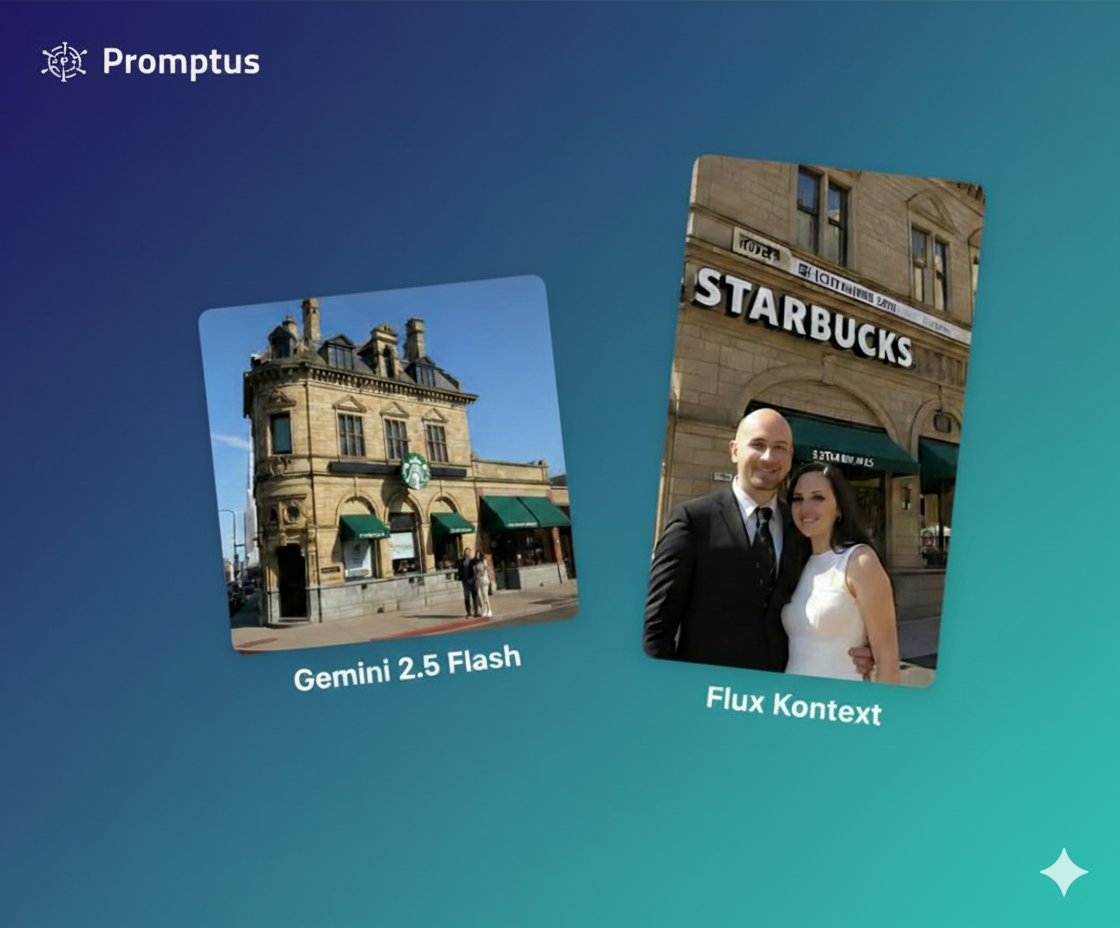
👩👧👧 Real-World Example 2: Family Photo Restoration & Colorization
Scenario: Restoring and colorizing an old family portrait of a mother with her two daughters. The original is faded, with scratches and in black-and-white.
Prompt:
"Restore this old family photo of a mother and two daughters: remove scratches, sharpen the details, and colorize it naturally."
Results to Expect:
- Nano Banana: Faithfully restores facial details, smooths scratches, and applies realistic natural skin tones and clothing colors while preserving family resemblance.
- Flux Kontext: Efficient at cleaning up scratches and general restoration, though colorization may require re-prompting for natural tones.
- Qwen-Image-Edit: Strong at precise pixel-level edits, especially in fixing scratches, but identity consistency across the three faces may be less stable than Nano Banana.
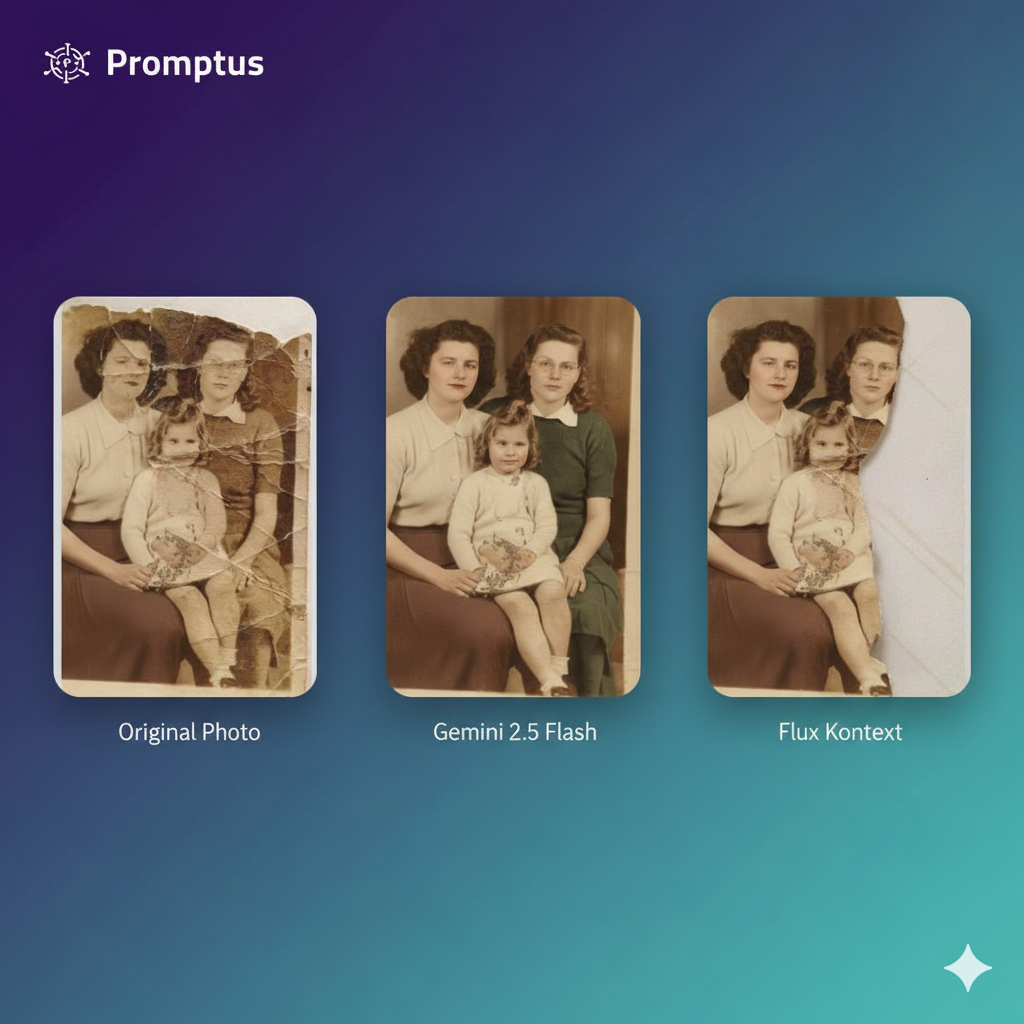
✨ Why These Examples Matter
These case studies highlight the core differentiators:
- Nano Banana → Identity stability + realistic, blended environments.
- Flux Kontext → Fast, practical object edits.
- Qwen-Image-Edit → Superior text editing + stylistic control.
Together, they show how each model serves a creative niche. But when it comes to consistent faces and smarter places, Nano Banana edges ahead.
🏁 Final Verdict
Nano Banana is more than an image generator — it’s a contextual, identity-preserving editor that feels like having a collaborative creative partner.
- Use Nano Banana for storytelling, campaigns, and multi-turn edits.
- Choose Flux Kontext for rapid object edits and iteration.
- Rely on Qwen-Image-Edit when text precision and design fidelity are essential.
The future of AI-assisted visuals is clear: Nano Banana leads with consistency, coherence, and creative trustworthiness.
AI Image Generator for Creators
Promptus connects you to Google Gemini 2.5 Flash Image. Instantly create original art, edit photos, and design visuals with the power of AI—all inside one app.




